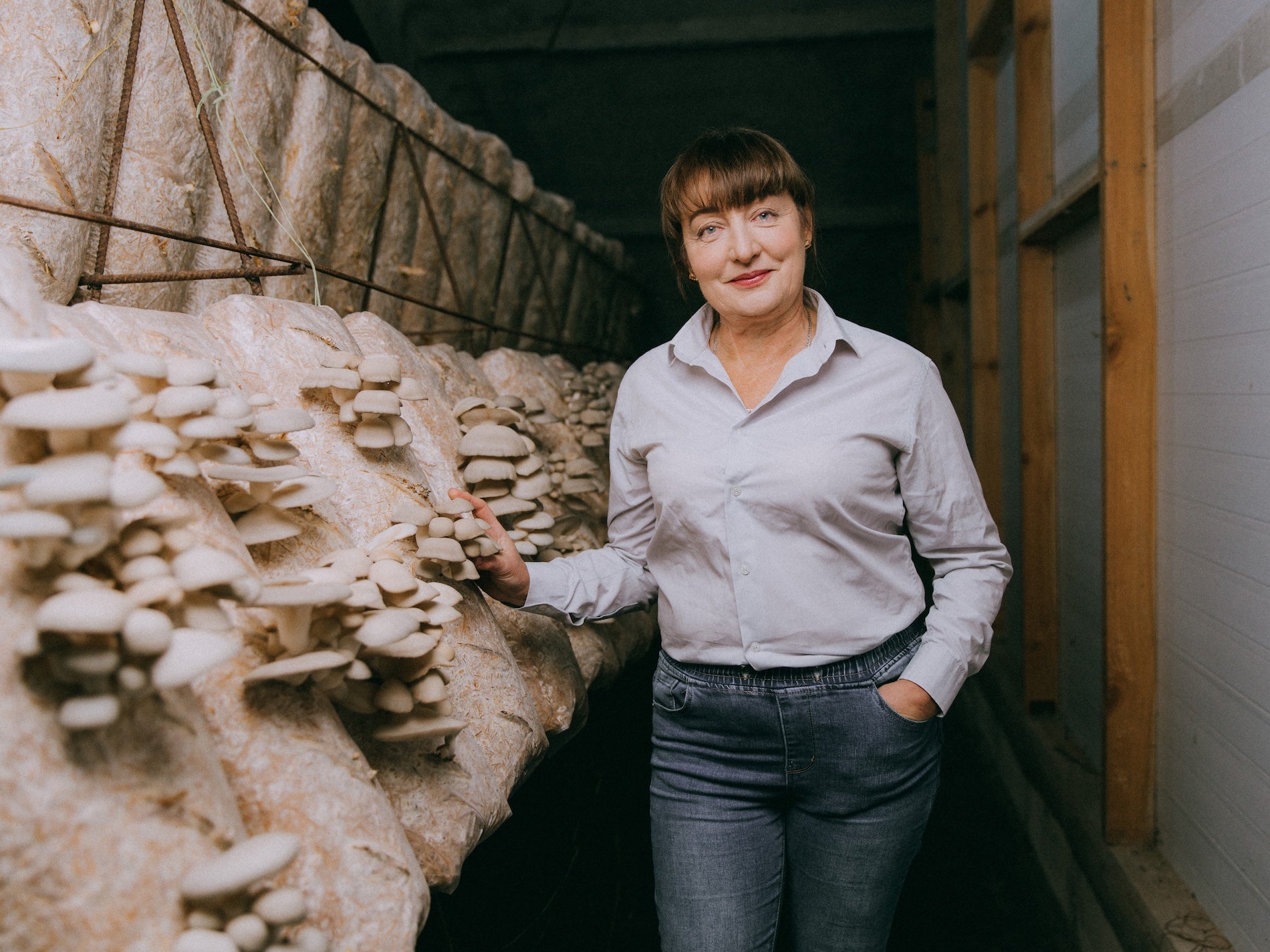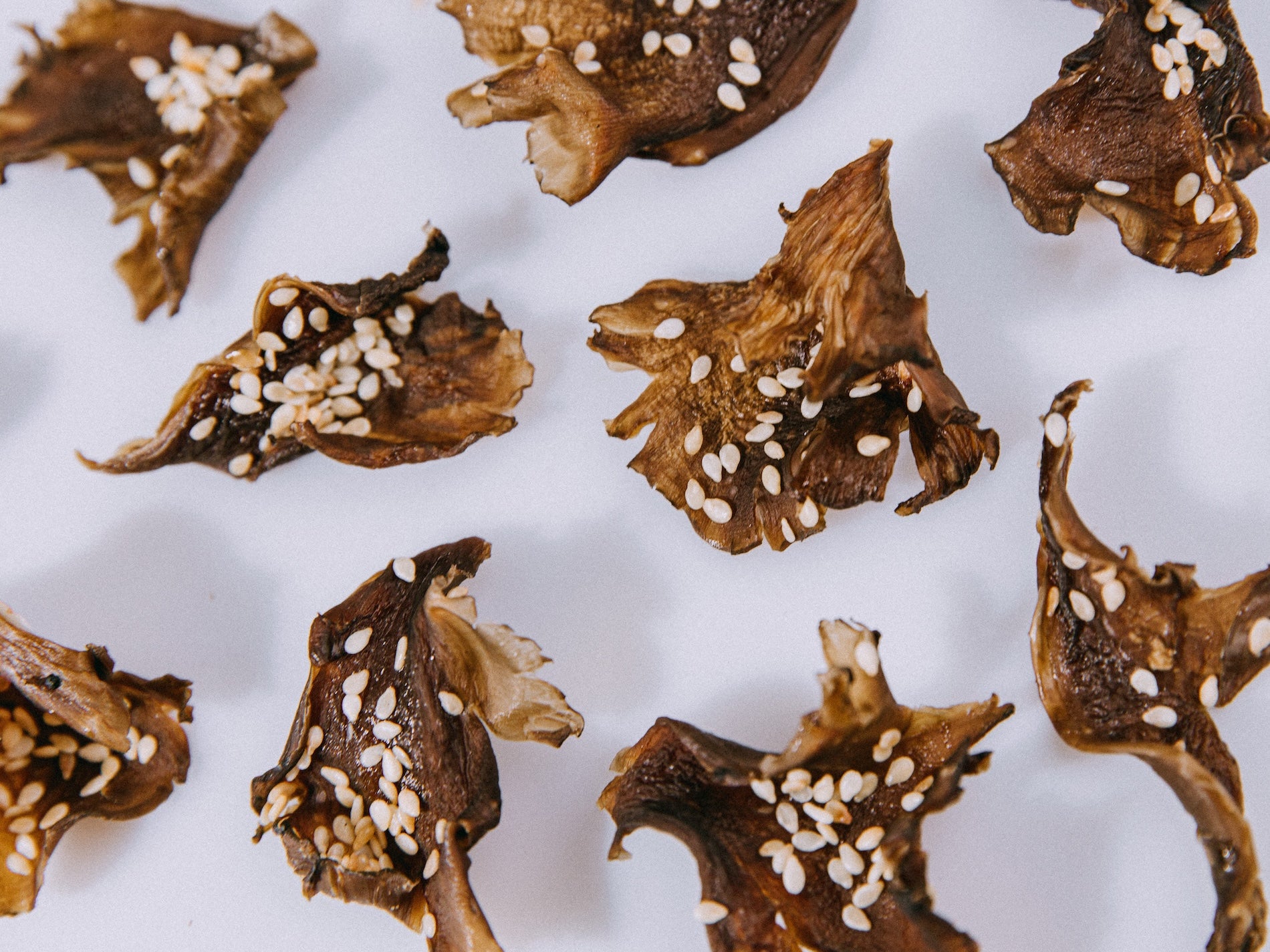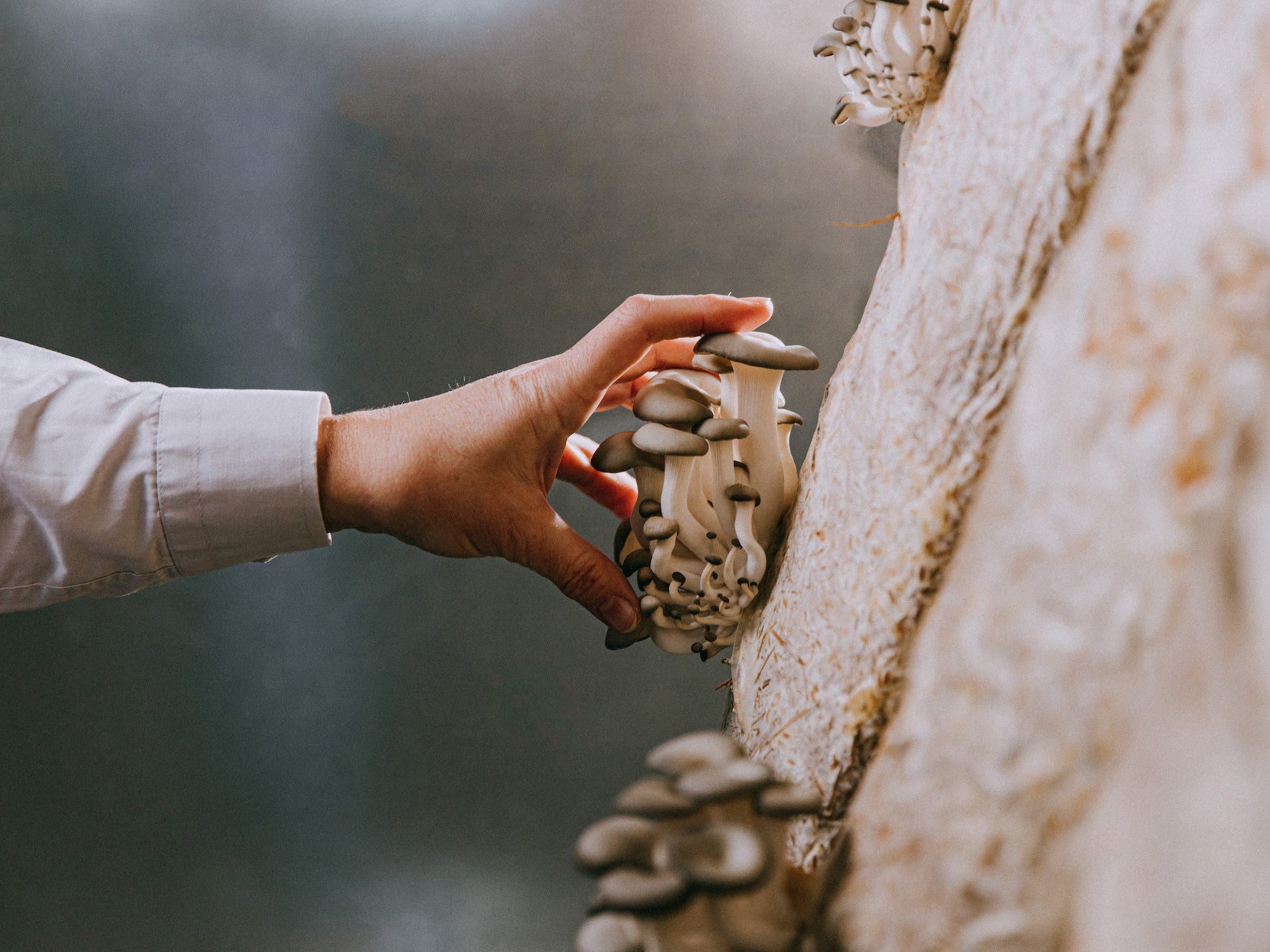In the words of entrepreneur Iryna Karpenko: ‘Now, despite all the challenges, we have not only restored the business but are also planning to expand it’
Date:

The family farm of Iryna Karpenko is located in the Chernihiv region of northern Ukraine, on the outskirts of Sloboda, a remote village where GPS and mobile networks often fail. The facilities of the farming enterprise producing mushroom jerky still bear the scars of Russian war: the entrance doors are riddled with bullet holes from machine-gun fire, and the roof was recently repaired after an explosion from an unidentified explosive device inside the building.
Despite these challenges, Iryna Karpenko is gradually restoring the farm and plans to expand the enterprise, even on lands still being cleared of mines after the expulsion of Russian occupiers. About the production of mushroom products — read the story of Iryna Karpenko.
‘I am a music teacher by education, with 15 years of teaching experience in schools, but I’ve been cultivating mushrooms for about 20 years. So, I’ve been an entrepreneur longer than I was a teacher. At that time, my salary as a schoolteacher was very low, while my hobby brought in significantly higher income. My fellow teachers tried to discourage me, saying it was risky and asking, “What if it doesn’t work out?” I submitted my resignation letter several times, hesitated, but ultimately decided to take the risk and work for myself.
I started by producing mycelium — the planting material for mushrooms. After the pandemic we noticed that dried products like tomatoes and fruits were popular, but there were no mushrooms in this segment. So, we decided to give it a try. We developed a process, created recipes with various flavors—and that’s how the story of "Mushroom Jerky" began. At first, we weren’t sure if there would be demand for this product. We started selling through Instagram, then opened a store on Etsy, and sales started there as well. The majority of our customers are from the U.S., Europe, and Canada.

In March 2022, Russian army occupied our village, occupation lasted 25 days. Just before the war, I was preparing to ship a batch of products from Chernihiv, so we packed everything we could and left. We couldn’t return to the farm: the bridge near Chernihiv was destroyed, and the area remained unsafe due to landmines. When we were finally allowed to return, I initially thought the facilities no longer existed, as tanks or other military equipment could have been stationed there. The Russian occupiers had hidden among residential buildings, and we understood that everything could have been damaged during the de-occupation. One of the buildings, the drying facility, was severely damaged: the roof was pierced by shrapnel, and an explosion inside caused a fire that destroyed part of the structure. At first, it seemed impossible to restore, but we gradually began repairing it. Due to the damaged roof, humidity levels in the mushroom-growing facilities became unacceptable. When water is pouring on you, there’s nothing you can do — even the machines in the building became covered with white mold. Now, despite all the challenges, we have not only restored the business but are also planning to expand it. Our chamber for growing mushrooms produces about a ton of mushrooms in a month and a half. We are gradually increasing production volumes and planning to open new chambers.
Participation at the project of NGO 'National Network of Local Philanthropy’ and funding from UN Women Ukraine and UN Women's Peace and Humanitarian Fund (WPHF) has been a true lifesaver for us! Previously we used to form straw blocks manually — filling and compacting them — but the process was very time-consuming and physically demanding. Now we have a specialized compaction machine that has significantly streamlined the process. With this equipment, our work has become much more efficient: while a person could manually produce 40 blocks a day, the machine now produces 3 blocks per minute. This has dramatically accelerated the entire process. We also expanded the container used for soaking straw.
We aim to highlight the potential of mushrooms products to the entire industry and encourage others to cultivate it. These are sustainable and very modern farming practices. That’s why I envision combining industry growth with the establishment of a dedicated mushroom cultivation training center. These modern, sustainable production technologies for healthy and nutritious food can support the economic development of our region’.
Read the full story: https://www.shemade.marieclaire.ua/en/portfolio/iryna-karpenko-farm-and-mushroom-jerky-production/

The project 'She Made: discovery & recovery of Ukraine' was created by Marie Claire Business Ukraine and UN Women Ukraine funded by The United Nations Women’s Peace and Humanitarian Fund (WPHF). WPHF mobilizes critical support for local and grassroots civil society organizations working on women, peace and security and humanitarian action. WPHF is a flexible and rapid financing mechanism supporting quality interventions designed to enhance the capacity of women to prevent conflict, respond to crises and emergencies, and seize key peacebuilding opportunities.
This publication is produced with funding from the United Nations Women’s Peace and Humanitarian Fund (WPHF), however, the views expressed and content included does not imply official endorsement or acceptance by the United Nations.
Photos: UN Women Ukraine/Nadiia Berska